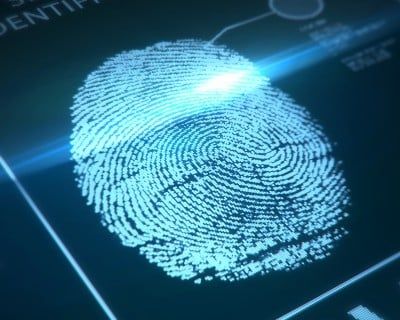
A former Hooters worker says he and other Illinois employees were forced to submit their fingerprints in order to clock in and out of their jobs, in violation of the state’s biometric privacy laws.
Lead Plaintiff Austin Kuznik claims in his class action lawsuit that Hooters collects and stores its employees’ fingerprints, a type of biometric information, without obtaining the proper authorization and providing employees information about how and how long this information will be retained and stored. Kuznik claims he and other Hooters employees are required to use their fingerprints to clock in and out of their shifts.
Kuznik says that when he was hired by Hooters in November 2016, he was forced to provide his fingerprints for timekeeping purposes. He says Hooters uses fingerprints to help cut back on “false-positive” identifications and timekeeping fraud by employees.
Kuznik says that, for the duration of his employment with Hooters, he never consented to the release of his fingerprint data; however, he believes the chain sends this information to a third-party tracking system out of the state.
In addition, the plaintiff, who stopped working at Hooters in 2018, says he has never been informed about whether Hooters has retained his fingerprint data or if it has been destroyed and how.
“Choosing to shun more traditional timekeeping methods, Defendants have instead implemented an invasive program that relies on the capture, collection, storage and use of its workers’ fingerprints, while disregarding the applicable Illinois statute and the privacy interests it protects,” the class action lawsuit alleges. “Unlike traditional time clock punch cards which can be changed or replaced if lost or compromised, fingerprints are unique, permanent biometric identifiers’ associated with each employee. This exposes Defendants’ workforce to serious and irreversible privacy risks. For example, if a fingerprint database is hacked, breached, or otherwise exposed, employees have no means by which to prevent identity theft and unauthorized tracking.”

According to the complaint, Illinois tightened restrictions regarding the collection and use of its residents’ biometric information after a company specializing in that information went bankrupt in 2007.
Allegedly, lawmakers were concerned about the sensitive nature of a person’s biometric information, including finger and palm prints, as well as other uniquely identifying information. If compromised, biometric information cannot be changed by a person to protect themselves from identity theft and fraud, noted the Illinois legislature when it enacted the Biometric Information Privacy Act (BIPA).
Under BIPA, companies that wish to retain and use Illinois residents’ biometric information must take certain actions, including:
- Informing people, in writing, that their biometric information will be collected and stored;
- Informing people, in writing, of the purpose of collecting and storing that information, along with how long the biometric information will be stored;
- Obtaining a written release from those people who provide their biometric information; and
- Making a retention schedule for the retention of that information public and issuing guidelines regarding the destruction of biometric information.
The class action lawsuit claims Hooters failed to follow any of these state-mandated measures when it collected its employees’ fingerprints. Specifically, the food chain fails to obtain a release from its Illinois employees to acquire their fingerprints, nor does it publish information about how long it will retain this information and how and when this information will be destroyed.
“The workers’ fingerprints are unique to each such worker, and Defendants’ capture, collection, and use of those biometric identifiers and information violates each worker’s substantive privacy rights protected under BIPA and exposes workers to serious and irreversible privacy risks — risks that BIPA was designed to avoid — including the ever-present risk of a data breach of Defendants’ systems exposing its employees’ biometrics to hackers and other wrongdoers worldwide,” the complaint alleges.
The Hooters class action lawsuit points out that, unlike other forms of private information, such as a person’s social security number, fingerprints and other biometric information cannot be changed if they fall into the wrong hands.
The plaintiff says he and other Illinois employees of the Hooters chain would not have provided their biometric information had they known that the company would retain that information indefinitely without their consent.
The plaintiff seeks to represent a proposed Class of current and former Hooters employees in Illinois who were forced to provide their fingerprints to the chain in violation of BIPA.
Are you an Illinois resident who has been required to submit fingerprints or other biometric information to your workplace? Are you concerned about your privacy? Tell us your thoughts in the comment section below!
The lead plaintiff and proposed Class Members are represented by James X. Bonnes of the Law Office of James X. Bormes P.C.
The Hooters Fingerprint Class Action Lawsuit is Kuznik v. Hooters of America, LLC, et al., Case No. 1:20-cv-01255, in the U.S. District Court for the Central District of Illinois.
ATTORNEY ADVERTISING
Top Class Actions is a Proud Member of the American Bar Association
LEGAL INFORMATION IS NOT LEGAL ADVICE
Top Class Actions Legal Statement
©2008 – 2025 Top Class Actions® LLC
Various Trademarks held by their respective owners
This website is not intended for viewing or usage by European Union citizens.















3 thoughts onHooters Class Action Lawsuit Claims Workers Have To Use Fingerprints To Clock In
I worked at Hooters from June 2018-May 2020. We had to use our fingerprint everytime we wanted to access the POS system. I would like more information, please!
I aslo provided finger print & I am in Iowa, I had to provide finger print for everything, including placing orders to each and every costumer.
I would like to know more about this class action lawsuit. I may have fell victim to this issue.